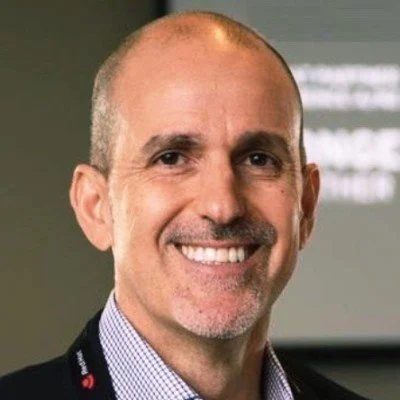
Agency Activation: How to Motivate Recruiters to Become Real Partners
Agencies don’t deliver just because they’re signed up. Activation means setting the right terms, motivating recruiters, tracking results, and turning them from passive CV suppliers into engaged hiring partners.

Why this matters
Treat Agencies As Partners
Most foreign tech firms turn to agencies as their first route into the Japan market. On paper this gives instant access to networks, but in reality the relationship is usually transactional. In success-based models, agencies juggle many clients and you are just one of them. That makes it hard to motivate extra effort – and in many cases the “service” is little more than forwarding an active candidate’s CV with a job description attached.
If you want better outcomes, you have to treat agencies as partners, not suppliers. The key is activation – assessing which firms you engage, aligning incentives, and giving them the tools to represent your brand properly. Done right, it becomes a win-win: agencies move from passive CV suppliers to genuine advocates, and you get more consistent, higher-quality introductions.
For leaders building teams in Japan, this shift is essential. The agency channel is too important to leave unmanaged – activation is what turns it from shallow coverage into real market reach.
Putting It Into Practice
From people, to contracts, to communication and data, success depends on how you manage the relationship.
Agencies in Japan don’t magically deliver just because you’ve signed them up. The difference between a transactional CV supplier and a true hiring partner comes down to four things: the recruiter you’re actually working with, the terms you’ve set, the way you communicate, and how you track performance. Get these right, and agencies stop being passive suppliers and start acting like motivated partners.
Choosing and engaging the right recruiters
Every agency has at least one excellent recruiter – the kind who knows the market and can actually deliver. The problem is, they may not be assigned to your account. You often end up working with whoever happened to find you or was free that day. Most recruiters are polite and personable, but if they’re not performing, you need to know. That means tracking:
Introduction numbers
Intro-to-interview ratios
Intro-to-hire ratios
When you last spoke to them
You don’t always need these KPIs, but when things go off track, they show you who’s truly adding value.
Terms of engagement – contracts that motivate
If all your agencies are on open contingency contracts, remember: they only get paid if you hire someone. They have no obligation to prioritise you. Recruiters will focus on whichever client pays best, gives them attention, or treats them as a partner.
To attract the best recruiters, you need to signal commitment:
Semi-exclusive searches so the message to the market is controlled
Exclusive windows (4–6 weeks, or up to 90 days for tough searches)
Retained searches where internal approvals allow
Competitive fees – remember that 30% of base-only for sales roles is effectively a 50% discount compared to market norms (30–35% OTE, sometimes 40–50% for rare engineering talent)
Campaigns – consider using higher fees over exclusive ‘campaign’ periods.
Exclusivity and fair terms make you stand out from the dozens of other clients on their desks.
Communication – from supplier to partner
Agencies are more responsive when they have something to work with. Too many TA teams blast out a job description and hope for the best. That’s not partnership.
Share updates regularly: new customer wins, leadership hires, cultural stories.
Help recruiters understand how to sell your business.
Run short-term campaigns if urgency matters – align priorities, commit to faster feedback, and keep recruiters motivated.
Remember: identifying candidates is their job, but attracting candidates is a joint effort.
Data, preparation, and shared accountability
Activation is also about discipline. Track the numbers: intros, conversions, hires. Know which agencies are generalists (volume hiring) and which are specialists (niche GTM or engineers). Double down on the ones who perform.
And don’t stop at intros – help agencies prepare their candidates. No one should fail an interview because they didn’t know who they were meeting or what the focus would be. Fail candidates only because they’re unqualified, not unprepared.
What this means for leaders
Delivery Comes When Agencies Are Partners
If you rely on agencies in Japan, you can’t just hand them a job description and hope for the best. The best recruiters prioritise clients who treat them fairly, give them focus, and make them feel valued. That means:
Set the right terms – exclusivity or retained searches signal commitment and attract stronger recruiters.
Pay competitively – sales roles paid on base-only fees are discounted to market; adjust if you want attention.
Invest in communication – update them on your story, wins, and culture so they can sell you to candidates.
Track performance – numbers don’t lie; know who is producing and who isn’t.
Activated agencies stop being transactional suppliers and become extensions of your hiring team. If you’re building in Japan, your job is not just to “use agencies” but to lead them well enough that they choose to work for you above others.

Deep Dive:
Educating Agencies
Deep Dive into Agency Education – Teach Recruiters to Sell
Most agency recruiters stop at the JD. That’s not laziness – it’s habit. They aren’t incentivised to go further, nor trained. Their managers often never needed to – they always had enough clients. The result: bland pitches, poor conversion, and a weak brand impression in front of candidates.
When I was at VMware, I met with our major agencies as agency hiring ramped up. I ran training sessions to show them how to tell the story. It was eye-opening – for them and for me. We learned quickly where each recruiter stood in their ability to sell, and how much stronger the candidate response became once they had the right narrative. Speaking with a wide range of agents and past clients recently, not much has changed.
Agencies need education, not just instructions. Teach them to go beyond the JD and use the same pyramid approach we use with candidates:
☐ Industry drivers & trends – explain why the market matters and where the company fits.
☐ Company momentum – give them proof of growth, expansion, and credibility in Japan.
☐ Product-market fit – highlight how your solution solves real problems, with local logos.
☐ The people – showcase leadership and managers that candidates want to work with.
☐ The role – frame it as a step up, not just a job description.
☐ ‘You’ – connect the opportunity back to candidate motivations they will uncover.
☐ Visuals – equip them with charts, success stories, videos, and profiles that resonate.
With a clear, consistent story, recruiters stop improvising and start pitching like true partners. The result: agencies shift from CV suppliers to engaged channels that deliver real impact.

Success Starts With Strategy
Hope isn’t a strategy. Every effective RPO begins with a clear plan – one that shows where you can improve quickly and how to build lasting capability.
Our approach focuses on three critical levers that create the foundation for rapid wins and sustainable results:
Agency Optimisation
Agency management with teeth
We don’t just manage agencies – we audit and classify them. We identify which recruiters are true specialists and which are generalists.
Easy-to-fill reqs go to referrals and direct sourcing. Hard-to-fill or urgent reqs go to qualified, motivated agencies, with the right incentives to get the job done.
Because great results are about partnership and mutual success.
Content Strategy
Direct Sourcing
Candidate-first, Channel-smart
Our RPOs start with candidate mapping with the goal of optimising direct sourcing. We build a view of who’s in the market, who can be referred, and who should be avoided. From there:
Referrals – engage employee networks first.
Direct sourcing – outbound targeting of the right people.
Job boards – assessed and used tactically, not by default.
Tell Your Story with content that converts
Most agencies pitch candidates with their own improvised story. We fix that. We create micro-sites for each project, with a storytelling model that works:
Industry trends and drivers, company positioning, product market fit and impact, people (leadership credibility), the role (kept concise), the candidate’s career path.
Every recruiter, every candidate, sees a consistent, compelling message – controlled by you, amplified by your agents.
Trust Earned, Not Claimed
Collective Experience In Practice
We’re not just another agency calling itself an RPO. Together with our partners, we’ve led Asia-Pacific recruitment programmes that helped build some of the world’s top technology companies. From executive search to large-scale hiring, our experience spans the leaders that have shaped today’s innovation economy.
And more.




























